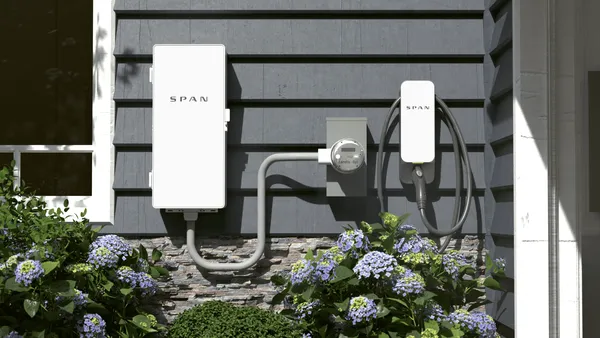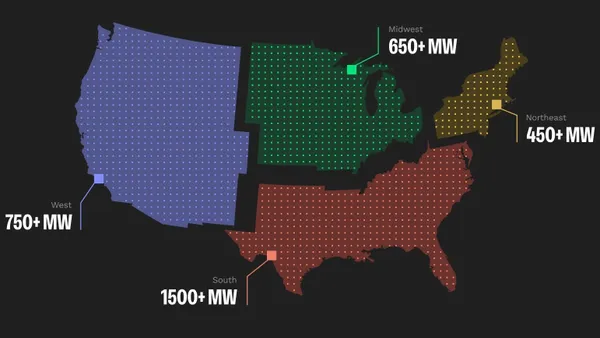Dive Brief:
-
Exelon expects to take a $173 million loss on a lawsuit related to the bribery scandal at its Commonwealth Edison utility, Jeanne Jones, Exelon chief financial officer, said Wednesday. The company anticipates the loss will be covered by insurance.
-
“We have made substantial changes to our contracting, lobbying and compliance operations to ensure that the conduct that was at issue in the trial does not happen again,” Calvin Butler, Exelon president and CEO, said during an earnings conference call a day after a jury found former ComEd CEO Anne Pramaggiore and three other defendants guilty of conspiring to bribe a state lawmaker.
-
Exelon has set aside $11 million to cover potential liabilities from a Federal Energy Regulatory Commission audit of ComEd’s accounting practices, the Chicago-based utility company said in a quarterly report filed with the Securities and Exchange Commission.
Dive Insight:
Exelon continues to face lawsuits related to the bribery scandal, including a putative class action lawsuit that was filed in federal court in December 2019 alleging misrepresentations and omissions in its SEC filings related to ComEd’s lobbying activities and related investigations, the company said in its quarterly filing with the SEC.
Based on recent developments in the case, management expects a $173 million loss is probable, Exelon said.
Three derivative suits are pending and two others were filed in April and May that assert similar claims to the one for which Exelon expects to post the loss, Jones said. Also, one consumer fraud case is pending after two were dismissed, she said.
Exelon and ComEd are fully cooperating with an SEC investigation into their lobbying activities, according to Jones.
Meanwhile, FERC staff earlier this year told ComEd about the potential findings of their audit, including concerns about the utility's methodology for allocating certain overhead costs to capital, according to the SEC filing. A loss related to the investigation is probable, but the outcome can’t be predicted and the results could be material to the financial statements of Exelon and ComEd, the company said.
Exelon’s first quarter income jumped 12% to $669 million on $5.56 billion in revenue from $597 million on $5.33 billion in revenue in the year-ago quarter, partly driven by higher rates, the utility company said Wednesday.
Not including certain one-time factors, first-quarter adjusted earnings per share increased 9.4% to 70 cents from 64 cents in the same quarter last year. Mild winter weather reduced earnings by 5 cents/share.
Looking ahead, Exelon’s utilities have seven pending distribution base rate cases seeking $2.67 billion in annual revenue, including $1.7 billion for ComEd, according to the company’s SEC filing. Six of the cases propose returns on equity of 10.4% to 10.65%. One asks for an 8.91% ROE.
Exelon expects Maryland’s expanded offshore wind energy goal will give its utilities a chance to build transmission in the state, according to Butler.
Last month, Maryland Gov. Wes Moore, D, signed the POWER Act into law, increasing the state’s offshore wind goal to 8,500 MW by 2031 from 2,000 MW.
It requires the Maryland Public Service Commission to ask the PJM Interconnection to study what transmission would be needed to accomplish the goal and for a solicitation for those facilities to be issued in mid-2025. Also, the PSC must consult with other PJM states to evaluate regional transmission cooperation to help achieve the state’s renewable energy and offshore wind energy goals, according to a summary of the legislation.
“I think we are well positioned to be a part of that,” Butler said.
Also, Exelon, ComEd and Potomac Electric Power are seeking nearly $700 million in federal bipartisan infrastructure act funds for smart grid and grid resilience programs, according to Exelon’s SEC filing. The company and its utilities are also supporting three proposed regional clean hydrogen hubs, covering the five states where they operate and Washington D.C.
Exelon has more than 10 million customers in Delaware, the District of Columbia, Illinois, Maryland, New Jersey and Pennsylvania through its transmission and distribution utilities: Atlantic City Electric, Baltimore Gas and Electric, Commonwealth Edison, Delmarva Power & Light, PECO Energy and Pepco.















